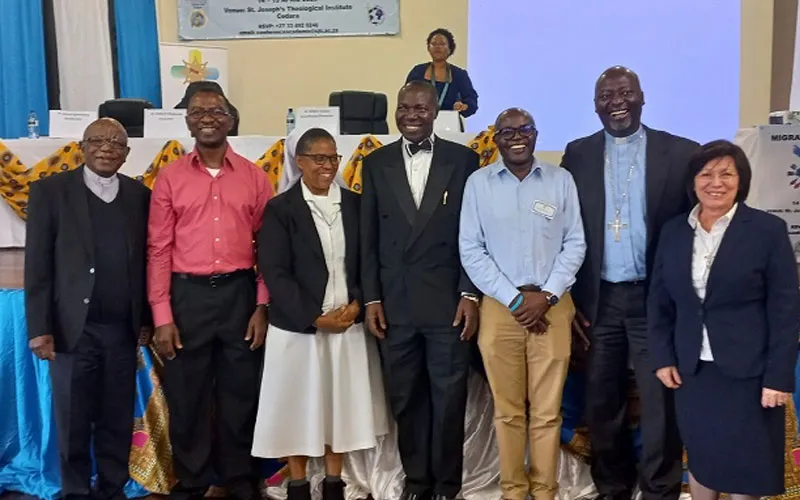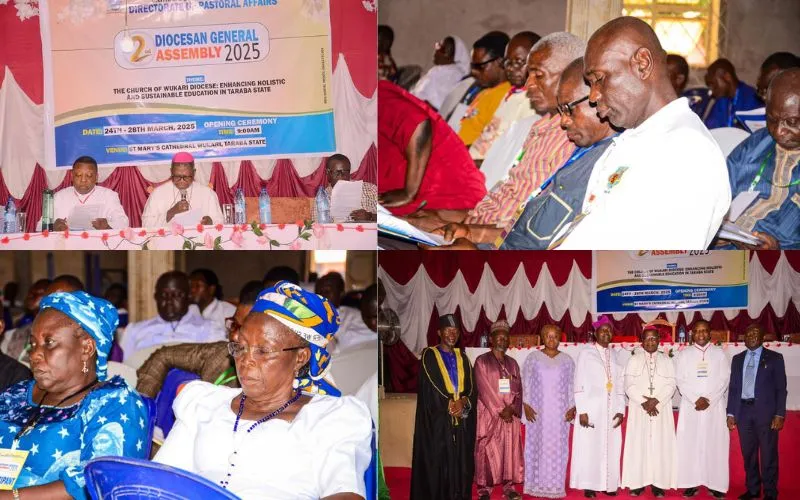The Catholic Church leader who started his Episcopal Ministry in April 1999 as Archbishop of South Africa’s Bloemfontein Archdiocese added, “Mandela is an iconic symbol of peace. This symbol is inextricably associated with the nation of South Africa.”
According to the Local Ordinary of the Archdiocese of Johannesburg, Nelson Mandela was the incarnation of the hope that South Africans would triumph against all the odds.
He said that inflicting pain on migrants and refugees is “a tragic betrayal” of the sacred oath that Nelson Mandela made on behalf of the people of South Africa.
Nelson Mandela, the Catholic Archbishop recalled, bequeathed South Africans the values of human dignity, reconciliation, peace, freedom, and hospitality.
“It is hardly 25 years since his death, yet South Africans already trample his legacy underfoot and make a spectacle of themselves. The on-looking nations are no longer impressed,” he said.
(Story continues below)
To Archbishop Tlhagale, the harsh treatment of migrants and refugees in South Africa could be an indication that the country has not healed from the past apartheid regime.
He warns that if the unwarranted violent attacks on migrants and refugees are not brought to a halt, South Africans run the risk of becoming like the oppressors of the apartheid era.
“The apartheid system brutalized people. It stripped them of their dignity, humiliated them, and inculcated a sense of self-hate. Indigenous people were physically segregated and declared foreigners in their own country of birth. This treatment entrenched feelings of revengefulness and bitterness amongst the oppressed,” the former SACBC Liaison Bishop for Migrants and Refugees observed.
“Hardly 25 years have passed, and some of us South Africans do to our African fellow migrants what our former oppressors used to do to us. South Africans considered their former oppressors as monsters. Today we have become those very monsters,” Archbishop Tlhagale who has been at the helm of Johannesburg Archdiocese since his installation in June 2003 said.
He added, “In meting out violence against African migrants we show open hatred. Such hatred against others impairs the dignity of the other and unfortunately reveals the brokenness of the South Africans themselves. The shameless physical attacks on migrants and refugees on spurious allegations that they have robbed South Africans of their jobs are simply disgraceful.”
“A conclusion could be drawn that South Africans who indulge in xenophobia have simply not healed from the wounds of the apartheid era. They are still hurting and are now taking out their anger on their fellow Africans,” the Catholic Archbishop said.
He went on to decry rampant looting of the belongings of the migrants, which he said is “unashamedly done by the youth while the adults stand by gloating.”
He warned that an absence of a consciousness of guilt, especially when mistreating migrants in South Africa, will continue to undermine the moral fabric of the South African society.
Archbishop Tlhagale underscored the need for “more prophetic voices” in the skirmishes between South African locals and migrants in the country, noting that the virtue of hospitality amongst South Africans is “at present a scarce resource”.
He appealed to the youths in the country, who he said have a history of championing justice, to stand up for migrants and refugees in South Africa.
“Young people have invariably been always in the forefront of the struggle for justice. The youth of 1976 hastened the advent of democracy in South Africa,” he said.
“The unplanned intermittent attacks on migrants and refugees are reprehensible acts of injustice. Such attacks are aimed at excluding and stigmatizing migrants,” Archbishop Tlhagale said, and posed, “Where then are the charismatic young people who would take the side of the oppressed migrants?”
Agnes Aineah is a Kenyan journalist with a background in digital and newspaper reporting. She holds a Master of Arts in Digital Journalism from the Aga Khan University, Graduate School of Media and Communications and a Bachelor's Degree in Linguistics, Media and Communications from Kenya's Moi University. Agnes currently serves as a journalist for ACI Africa.








